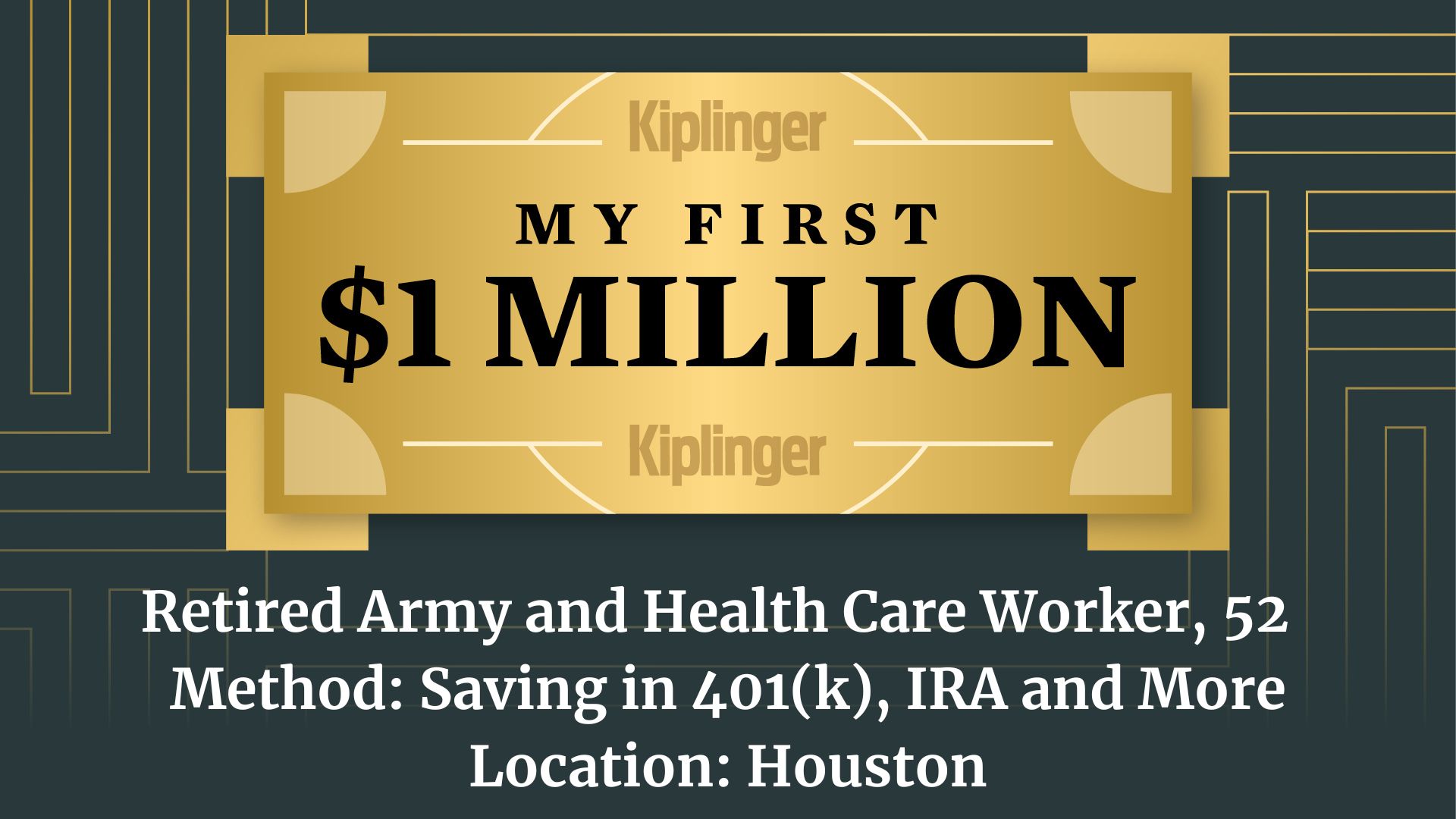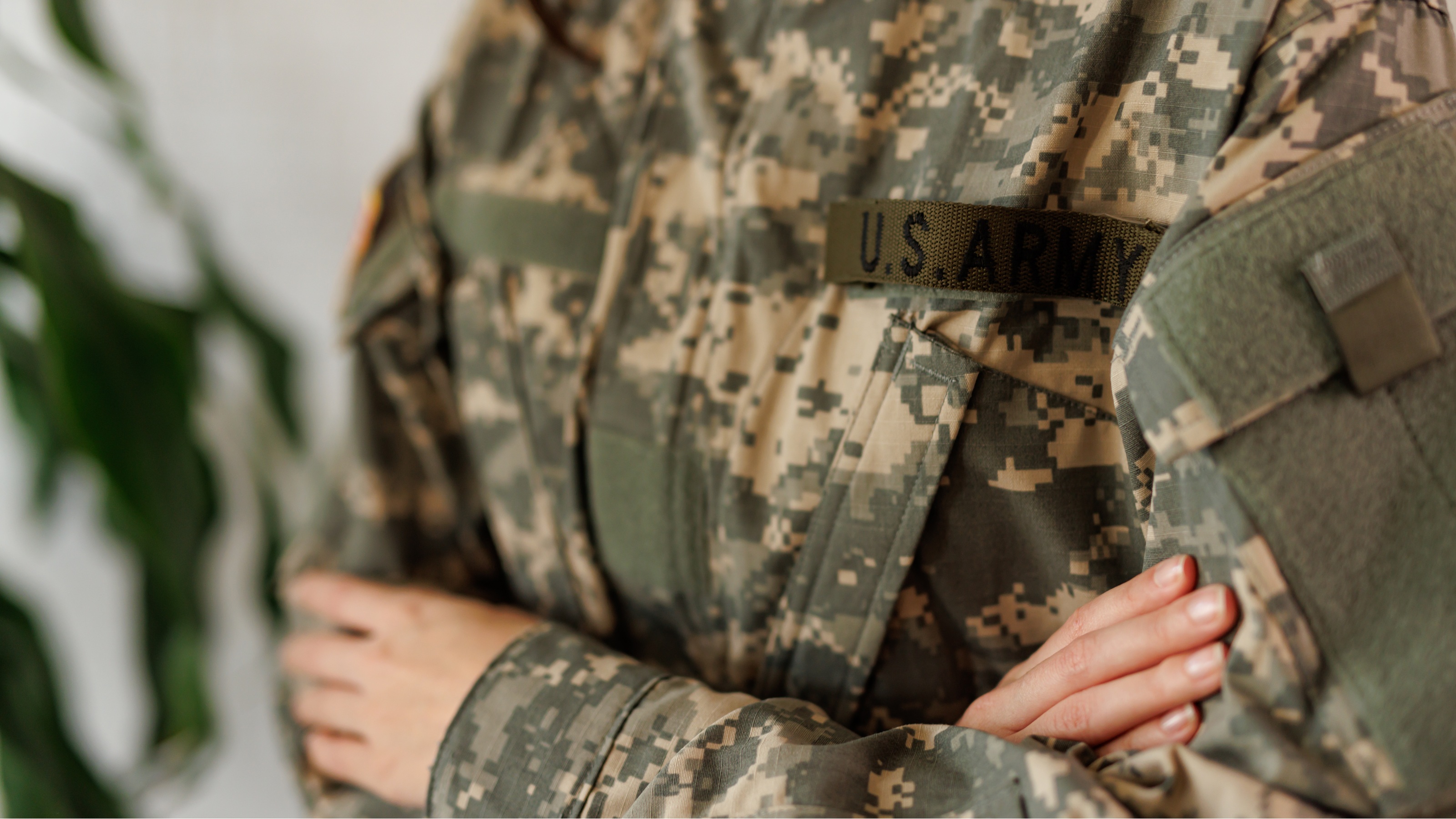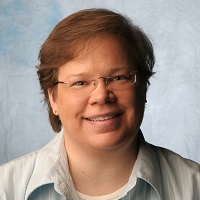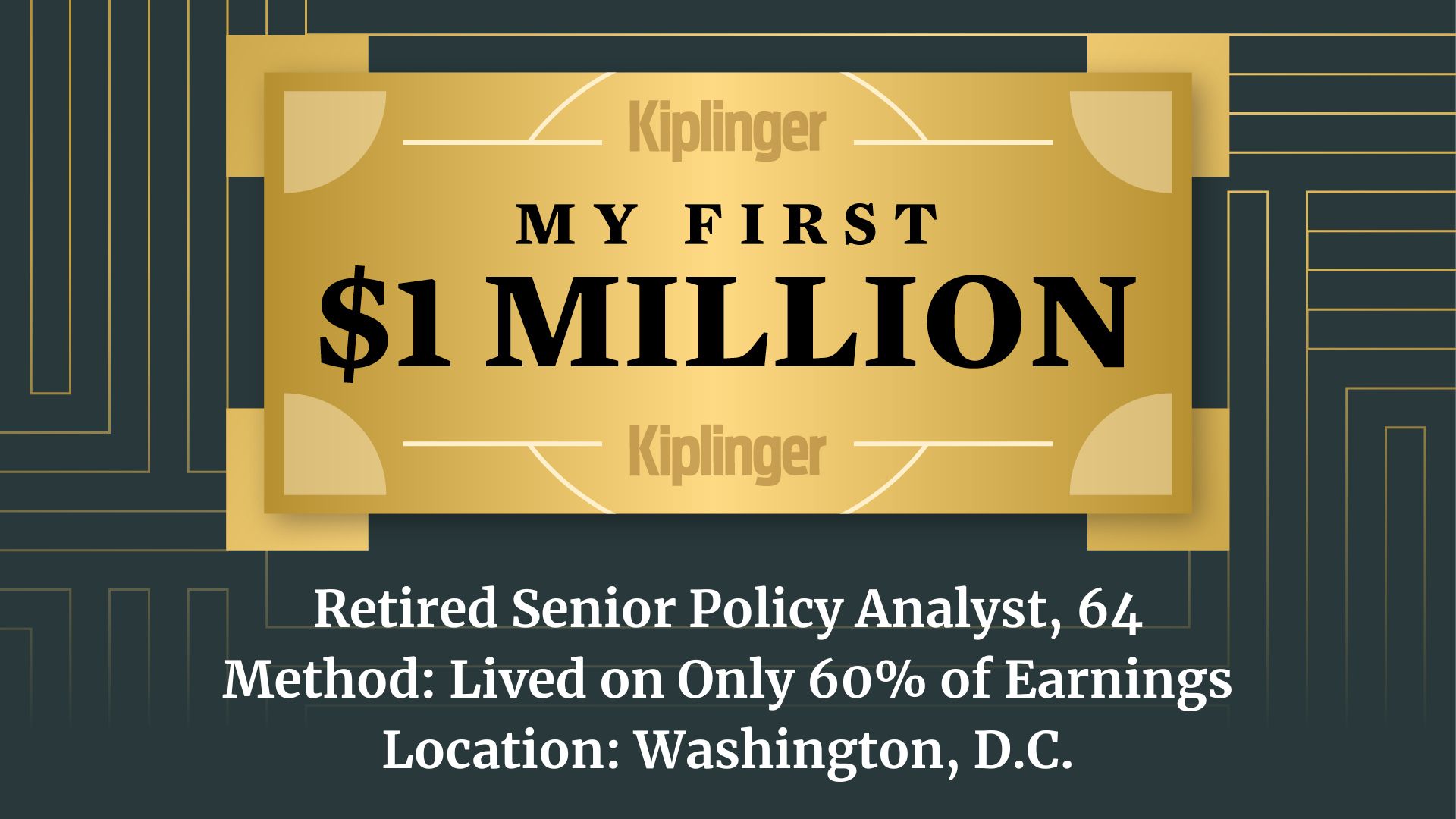My First $1 Million: Retired Army and Health Care Worker, 52, Houston
"Our story is hard work, living below our means and paying off debt. We added up our accounts one day and were like, "Hey, we are millionaires."


Profit and prosper with the best of Kiplinger's advice on investing, taxes, retirement, personal finance and much more. Delivered daily. Enter your email in the box and click Sign Me Up.
You are now subscribed
Your newsletter sign-up was successful
Want to add more newsletters?
Welcome to Kiplinger's My First $1 Million series, in which we hear from people who have made $1 million. They're sharing how they did it and what they're doing with it. This time, we hear from a married 52-year-old health care worker in Houston who retired from the Army.
See our earlier profiles, including a writer in New England, a literacy interventionist in Colorado, a semiretired entrepreneur in Nashville and an events industry CEO in Northern New Jersey. (See all of the profiles here.)
Each profile features one person or couple, who will always be completely anonymous to readers, answering questions to help our readers learn from their experience.
From just $107.88 $24.99 for Kiplinger Personal Finance
Become a smarter, better informed investor. Subscribe from just $107.88 $24.99, plus get up to 4 Special Issues

Sign up for Kiplinger’s Free Newsletters
Profit and prosper with the best of expert advice on investing, taxes, retirement, personal finance and more - straight to your e-mail.
Profit and prosper with the best of expert advice - straight to your e-mail.
These features are intended to provide a window into how different people build their savings — they're not intended to provide financial advice.
THE BASICS
How did you make your first $1 million?
Saved in a 401(k), IRA and brokerage account. We probably were net-worth millionaires at 46 years old, but now my individual accounts are over a million, and my wife's accounts are almost a million. Our net worth together is now about $3 million with our house.
We both retired from the Army reserves and now work health care jobs.

Our story is hard work, living below our means and paying off debt after realizing we were struggling with a lot of debt.
What are you doing with the money?
We invest our money with Fidelity and Vanguard. The only real estate we own is our home. I currently pay my mother's mortgage.
We have one daughter in college and a son in elementary school. Two older daughters are out on their own.
THE FUN STUFF
Did you do anything to celebrate?
Not really. We just added up our accounts one day and were like, "Hey, we are millionaires."

Does anyone know you're a millionaire?
We have let our kids know and close friends and family but for the most part were low key millionaires.
What is the best part of making $1 million?
Just knowing that hard work and diligence pay off.
Did your life change?
Our life didn't change, but we plan to travel more in the future.

I have slowed down at different times in my life to start a small business or to work less because I hit the millionaire milestone.
Any plans to retire early?
I want to retire in three to five years at 55 or 57. My wife wants to work until she's 60, but I'm trying to convince her to retire sooner.
LOOKING BACK
Anything you would do differently?
I would have gotten out of debt sooner and I would have bought a smaller house when we got married. New cars are my kryptonite and have been a drag on my savings over the last 10 years.

Did you work with a financial adviser?
My wife once used First Command for advice, and I have used different financial advisers who were not that helpful.
I read Dave Ramsey's The Total Money Makeover, The Millionaire Next Door, Rich Dad Poor Dad and other books to get out of debt and change my mindset about money.
Did anyone help you early on?
My stepdad helped me cosign for a new Ford Ranger in 1991 during my first year in the Army. An uncle gave me a loan to help pay my rent while I was an undergrad, which I quickly paid back when I received my financial aid.
LOOKING AHEAD
Plans for your next $1 million?
We are amazed at the power of compound interest, and we want to travel more and work less over the next few years.
Any advice for others trying to make their first $1 million?
Save consistently, refrain from debt in the form of credit cards and cars, buy houses you can afford.

What do you wish you'd known …
When you first started saving? I wish I had kept my savings rate constant over the years.
When you first started investing? I would have invested in simple ETFs and mutual funds and stayed consistent early.
When you first started working with a financial professional? I worked with one financial planner who was more interested in how much money he could make off of me instead of being a fiduciary.
Anything you'd like to add?
My wife and I used the GI Bill and Army loan repayment to help pay for our bachelor's, master's and doctorate degrees. The military was instrumental in helping our journey in life, from education to VA benefits to buying our home when we married 10 years ago.
If you have made $1 million or more and would like to be anonymously featured in a future My First $1 Million profile, please fill out and submit this Google Form or send an email to MyFirstMillion@futurenet.com to receive the questions. We welcome all stories that add up to $1 million or more in your accounts, although we will use discretion in which stories we choose to publish, to ensure we share a diversity of experiences. We also might want to verify that you really do have $1 million. Your answers may be edited for clarity.
RELATED CONTENT
- You're 62 Years Old With $1 Million Saved: Can You Retire?
- Want to Earn $1 Million More Over Your Lifetime? Do This
- Do You Have at Least $1 Million in Tax-Deferred Investments?
- Are You Rich? U.S. Net Worth Percentiles Can Provide Answers
- Compare Your Net Worth by Age
Profit and prosper with the best of Kiplinger's advice on investing, taxes, retirement, personal finance and much more. Delivered daily. Enter your email in the box and click Sign Me Up.

As Contributed Content Editor for the Adviser Intel channel on Kiplinger.com, Joyce edits articles from hundreds of financial experts about retirement planning strategies, including estate planning, taxes, personal finance, investing, charitable giving and more. She has more than 30 years of editing experience in business and features news, including 15 years in the Money section at USA Today.
-
 4 High-End Experiences Worth the Splurge After 50
4 High-End Experiences Worth the Splurge After 50These curated date ideas provide the perfect backdrop for couples ready to enjoy the very best that the world has to offer.
-
 Health Care Stocks Have Sagged. Can You Bet on a Recovery?
Health Care Stocks Have Sagged. Can You Bet on a Recovery?The flagging health care sector has perked up a bit lately. Is it time to invest?
-
 Costco's Auto Program: Can Membership Pricing Really Save You Money on a Car?
Costco's Auto Program: Can Membership Pricing Really Save You Money on a Car?Costco's Auto Program can simplify the car-buying process with prearranged pricing and member perks. Here's what to know before you use it.
-
 What Is an Assumable Mortgage and Could It Save You Thousands?
What Is an Assumable Mortgage and Could It Save You Thousands?With mortgage rates still elevated, taking over a seller’s existing home loan could lower monthly payments — if the numbers work.
-
 Have You Fallen Into the High-Earning Trap? This Is How to Escape
Have You Fallen Into the High-Earning Trap? This Is How to EscapeHigh income is a gift, but it can pull you into higher spending, undisciplined investing and overreliance on future earnings. These actionable steps will help you escape the trap.
-
 I'm a Financial Adviser: These 3 Questions Can Help You Navigate a Noisy Year With Financial Clarity
I'm a Financial Adviser: These 3 Questions Can Help You Navigate a Noisy Year With Financial ClarityThe key is to resist focusing only on the markets. Instead, when making financial decisions, think about your values and what matters the most to you.
-
 Where Olympians Store Their Medals is a Great Lesson For Your Valuables and Cash
Where Olympians Store Their Medals is a Great Lesson For Your Valuables and CashWhat you can learn about protecting your cash and values from where Olympians store their medals.
-
 An Executive's 'Idiotic' Idea: Skip Safety Class and Commit a Federal Crime
An Executive's 'Idiotic' Idea: Skip Safety Class and Commit a Federal CrimeSeveral medical professionals reached out to say that one of their bosses suggested committing a crime to fulfill OSHA requirements. What's an employee to do?
-
 How You Can Use the Financial Resource Built Into Your Home to Help With Your Long-Term Goals
How You Can Use the Financial Resource Built Into Your Home to Help With Your Long-Term GoalsHomeowners are increasingly using their home equity, through products like HELOCs and home equity loans, as a financial resource for managing debt, funding renovations and more.
-
 How to Find Free Money for Graduate School as Federal Loans Tighten in 2026
How to Find Free Money for Graduate School as Federal Loans Tighten in 2026Starting July 1, federal borrowing will be capped for new graduate students, making scholarships and other forms of "free money" vital. Here's what to know.
-
 My First $1 Million: Retired Senior Policy Analyst, 64, Washington, D.C.
My First $1 Million: Retired Senior Policy Analyst, 64, Washington, D.C.Ever wonder how someone who's made a million dollars or more did it? Kiplinger's My First $1 Million series uncovers the answers.